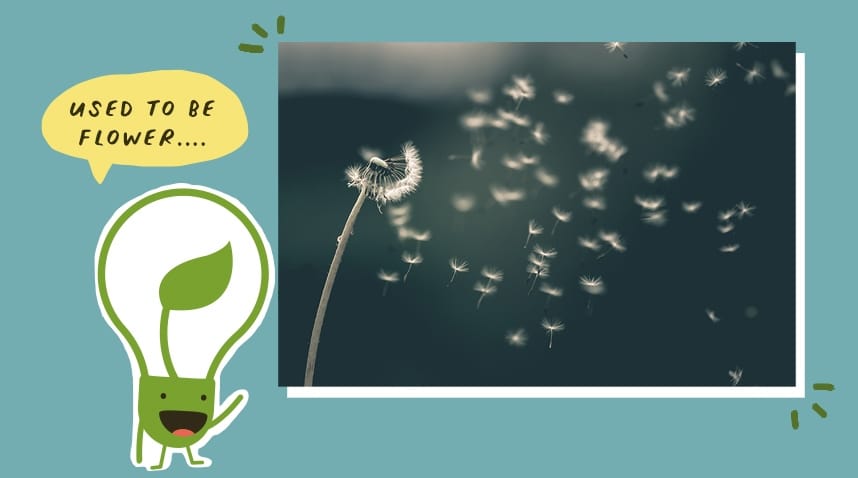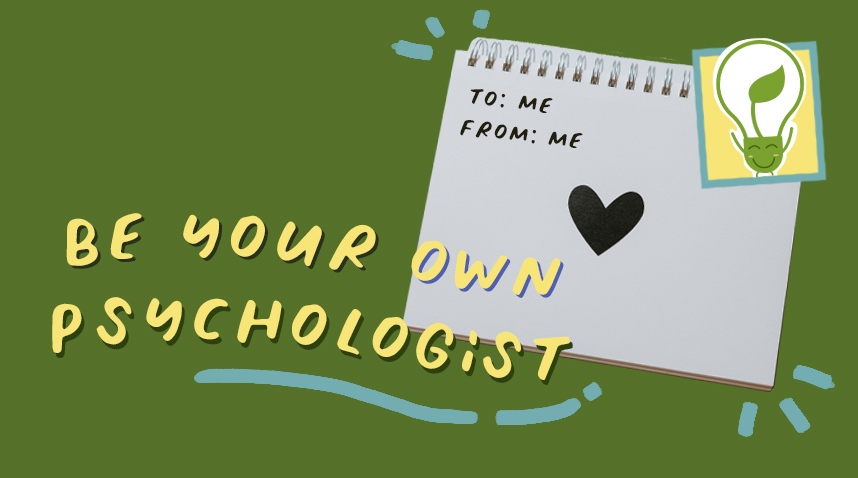TLDR: The pandemic and climate change have shown us how fragile our minds can be during times of great change. How can we take care of our minds and learn to be our own psychologist?
We spend a great part of our lives busy with our studies, career, starting a family to taking care of the family. Much of our thoughts go towards achieving a goal or doing something we enjoy. All of these seem perfectly normal, which it is since it’s how our industrialized society has functioned for generations. It is a cycle of life as we know it on earth. We are born, study, get a job, start a family, hopefully have enough to enjoy our retirement and then die.
In order to keep the cycle going, we accept the stress that comes along with it – since life is sweet and bitter right? Stress is becoming more salient with current conditions. While not everyone is clinical depressed, any unexpected change in our lives – already upended by Covid 19 and with more to come – could easily tip one over into serious depression. If you are already feeling some anxieties about the uncertainties you are facing and seeing a counsellor or psychologist is not yet a necessity, what can you do? The good news is, you can start learning to be your own psychologist.
Here are six ways on how you can do so!

1. Seeing Impermanence
There is much to worry about in our lives, especially with changes in our current economy and climate. Also, the pandemic has shown us that our lives or the retirement we work towards are not guaranteed. We could catch the virus and die, we never know. While we all dislike changes that challenge our lives, these changes are actually great opportunities for us to recognise impermanence. Changes have always been there, but we never notice it until it disrupts our lives.
Impermanence seems to be built into nature to make us feel uncomfortable in order that we may start looking inwards. Why do we have fears? Man’s greatest fear, as well as that of plants and animals, is death. The fear of death drives our behaviours. Behaviours we never suspect would come from this fear of death.
Why is there fear of death within our hearts? Perhaps we can look at our perception of the nature of change itself.

2. No Beginning, No End
If you have had a walk in the park, you might have noticed leaves falling from trees. The fallen leaves are mostly old and yellowed. There are young leaves too who have fallen from the trees. In the wilderness, these leaves decompose. Their decomposition becomes fertilizer for earth, so that more plants and trees may grow.
Plants don’t grow without water or the sunlight.
As plants turn sunlight into energy, we consume the energy of the sunlight through plants. We too, partake in the sunlight and water the plants consume, in order to survive. Our bodies are intertwined with nature.
Like a piece of paper, our bodies too contain the elements of plants, sunlight and water.
As our bodies age and die, it too could become fertilizer for earth to grow new organisms. Truth is, there is no beginning or end, but only change. One body change to another just like water turning into ice due to conditions. Despite learning about change in elementary science, we however, do not think this constant change in nature applies to us.
Our bodies are a part of nature dependent on nature. It does not belong to us. We identify with our bodies. We identify people we know with their bodies. With this identification that the body is “I”, there is always this feeling of holding onto the body. The Buddha talked about three types of feelings. We can easily feel pleasant and unpleasant feelings. What about neutral feelings? Is your mind holding onto the neutral feeling in your body when the grosser feelings are absent?

3. Investigating Perception
Our perception on normal days is impeded by mundane knowledge. When we see a tree for example, we look at it with the image we already have in our minds. With this image in our minds, we think we already know the tree and so we don’t pay attention to it. Otherwise, we look at the tree and think about what type of tree it is, if it produces flowers or fruits, or if it can be of any use for us.
It is the same when we look at people. We think we already know the person – the name, the face, the body, the school s/he came from etc. Or we produce an image in our minds of this person and hardly pay any attention to him/her.
But if we look deeper, we may find that the relationship with have with our world is based on the images we have in our mind. Isn’t it ludicrous that various feelings emerge from just having relationships with the images in our minds?
If you haven’t noticed the image in your mind, you might have noticed the narratives and voice in your mind on different objects you come into contact with.
4. Seeing the World as It Is
Our habitual identification with our perception and body do not allow us to really see things as it is. Try letting go of what you know or think you know. Look at your body without your thinking you already know who you are. What is this body and mind? Isn’t it strange and yet fascinating that this body, dependent on earth, water and sunlight, is able to move and speak? Isn’t it amazing that the brain, which lives on glucose is able to think?
When you take a walk in the park the next time, let go of the image you already have of the plants and trees. Look and listen without having preconceived notion. Let go of your feelings about them and see. What do you see?

5. Effects of Wrong Identification
We have not really lived because of the mundane knowledge we have identified with. We live in a way where we do not notice what’s around us and we get bored easily. If boredom is the only problem, then maybe it isn’t that bad. But no. We have fears, stress and anxieties and we don’t truly enjoy each breath or moment that passes.
We identify with fleeting images and narratives in our minds that are conditioned. Conditioned things are built and dependent on one another. Conditional things are how nature functions and it includes our mental and emotional world. Sadness cannot arise without happiness. Death cannot come without birth. These dualities create one another. Being concentrated on one or the other mental or emotional state create more likes and dislikes in our mind producing actions. In this endless cycle, we are living between dullness and restlessness, birth and dying, pleasure and fear. Underneath the gross states is a neutral feeling we hold onto we call “I”, which we emphasize with gross feelings. Anything threatening the survival of this feeling of an “I” causes stress and fear. It truly is an ocean in a storm even if subtle.
6. Letting Go

To begin with the small steps of letting go of duality is to start seeing and hearing with a fresh mind every moment. This is a repeated intentional action we take in our minds all the time. Why let go? The wise throughout the ages have said the same thing – if the mind and body truly are ours, it would not change. If earth truly is our home, why do we die?
Impermanence is a great teacher that teaches us to let go with everything we do. We do what we have to do and let it go. If we want to experience good effects, just do good by way of compassion, friendship and non-expectation. Let things unfold and observe if the law of cause and effect is truly real in our experience.
For every negative emotion, there is the positive counterpart in our world of duality. If you are impatient, there is also patience within you. It’s not that it’s not there, but you may not have explored it as much as impatience.
Recognise how desire feels. Does it feel good? Does it make you feel contentment? Funny thing about desire is, there is this heightened feeling that drives action and produces a pleasant thought in our minds.
We tend to think desires bring gratification and so chase after it. But truth is, behind every desire also lies disappointment, regrets and sadness when we don’t get what we want, or when what we want disappears in this world of impermanence.
Staying Curious
By being curious and inquiring into our feelings and impermanence, we learn to be our own psychologist. We begin with noticing how our minds are identifying with different feelings, thoughts and objects that never last. Slowly and surely, insights will arise on the nature of impermanence. In the process we will slowly learn to let go of anxieties and fears while enjoying every breath without holding on, for nothing truly belongs to us.
Wise Steps:
1. Be curious about your experiences in terms of feelings (pleasant, unpleasant and neutral). See how each action, driven by desire, bring up an effect in your experience.
2. Put away the knowledge you have about your environment and the people around you. See them for what they are, and not the relationship you have with them in the image of your mind.
3. Notice with curiosity how each feeling in you ceases eventually. Don’t act on the impulse and see if the feeling persists when you don’t indulge in it. See impermanence in your experience.


